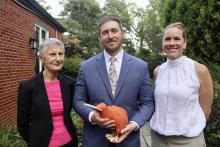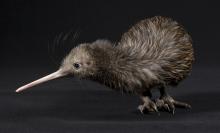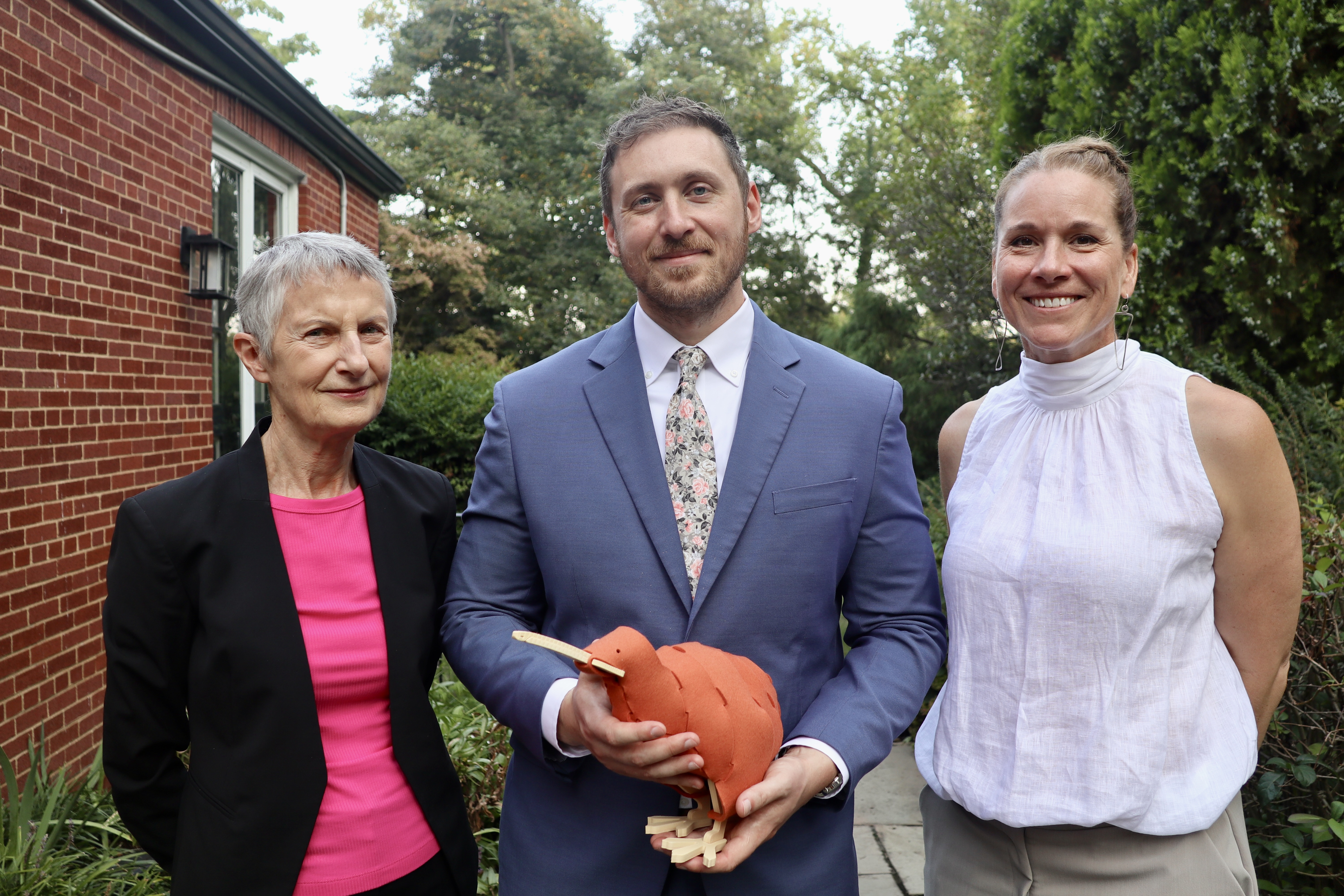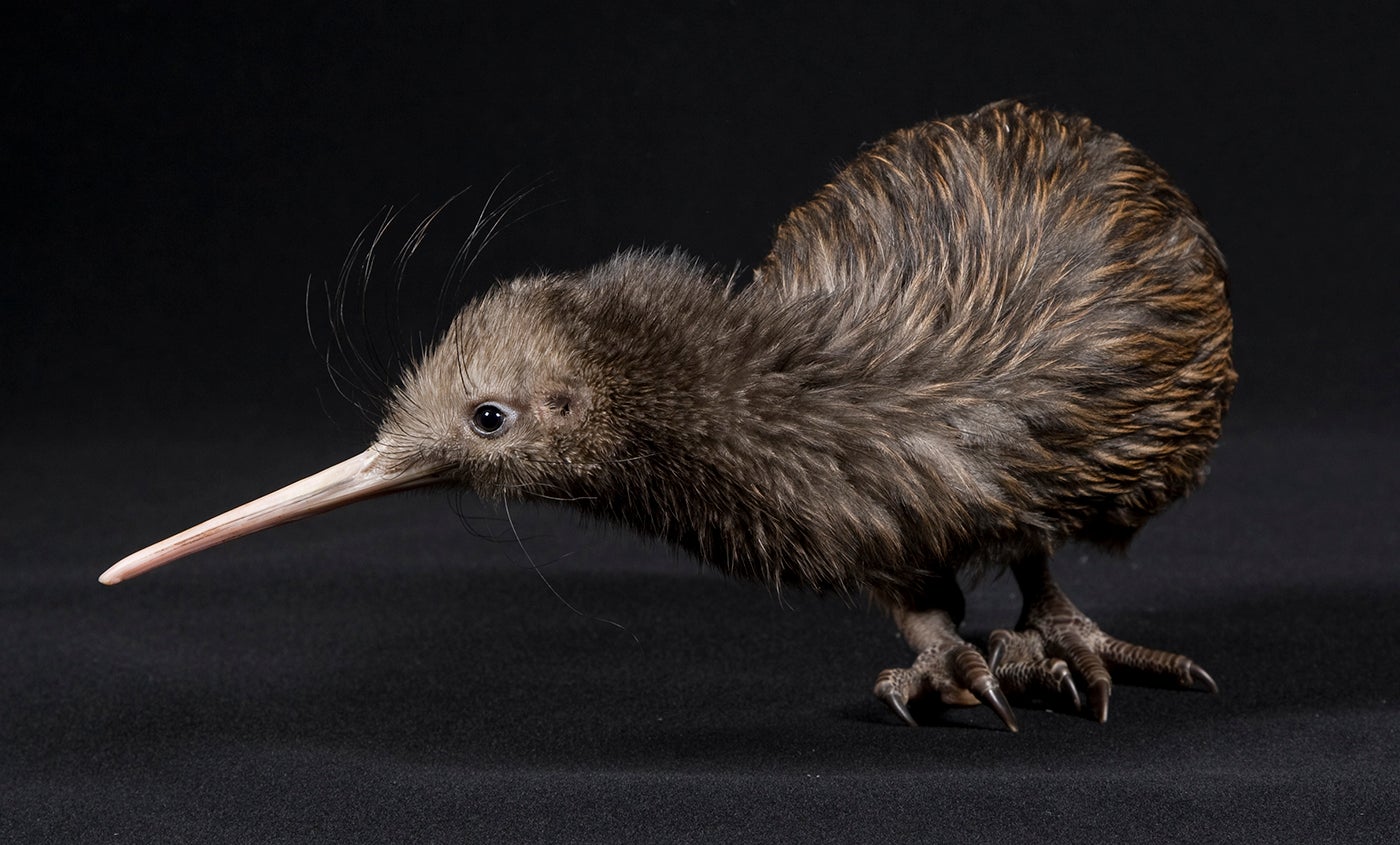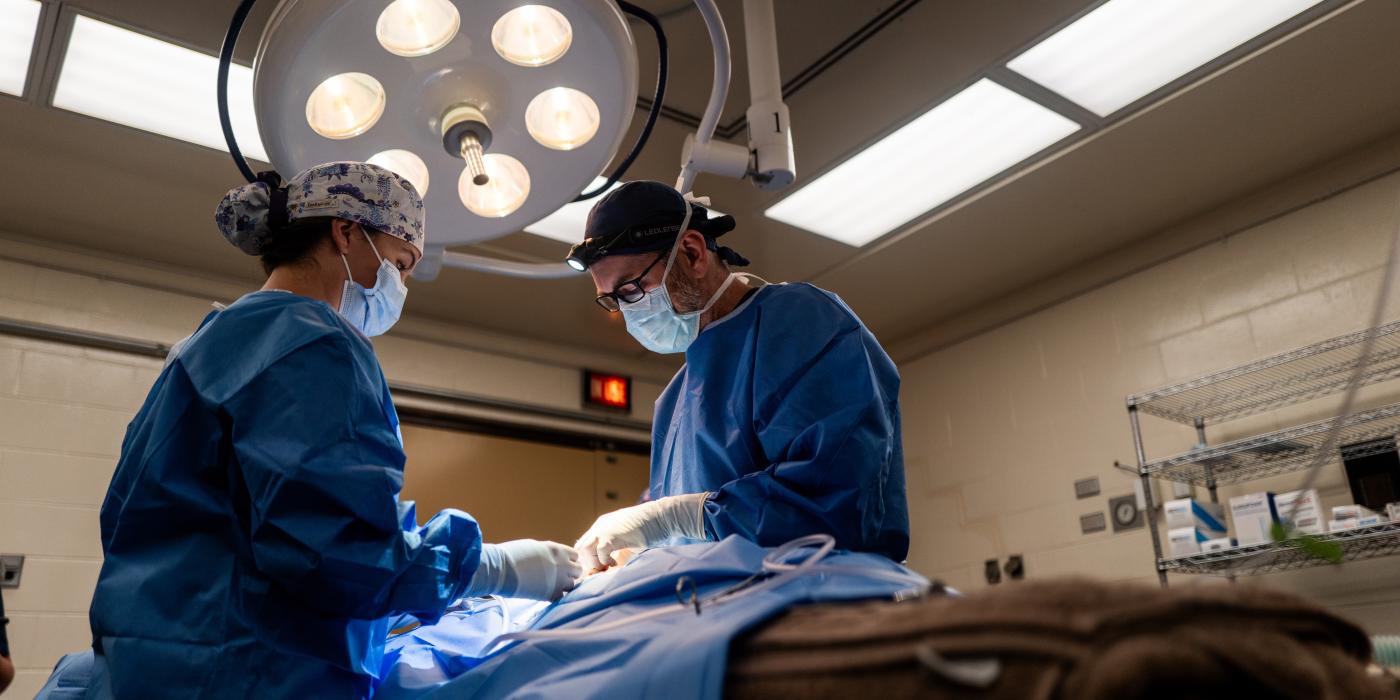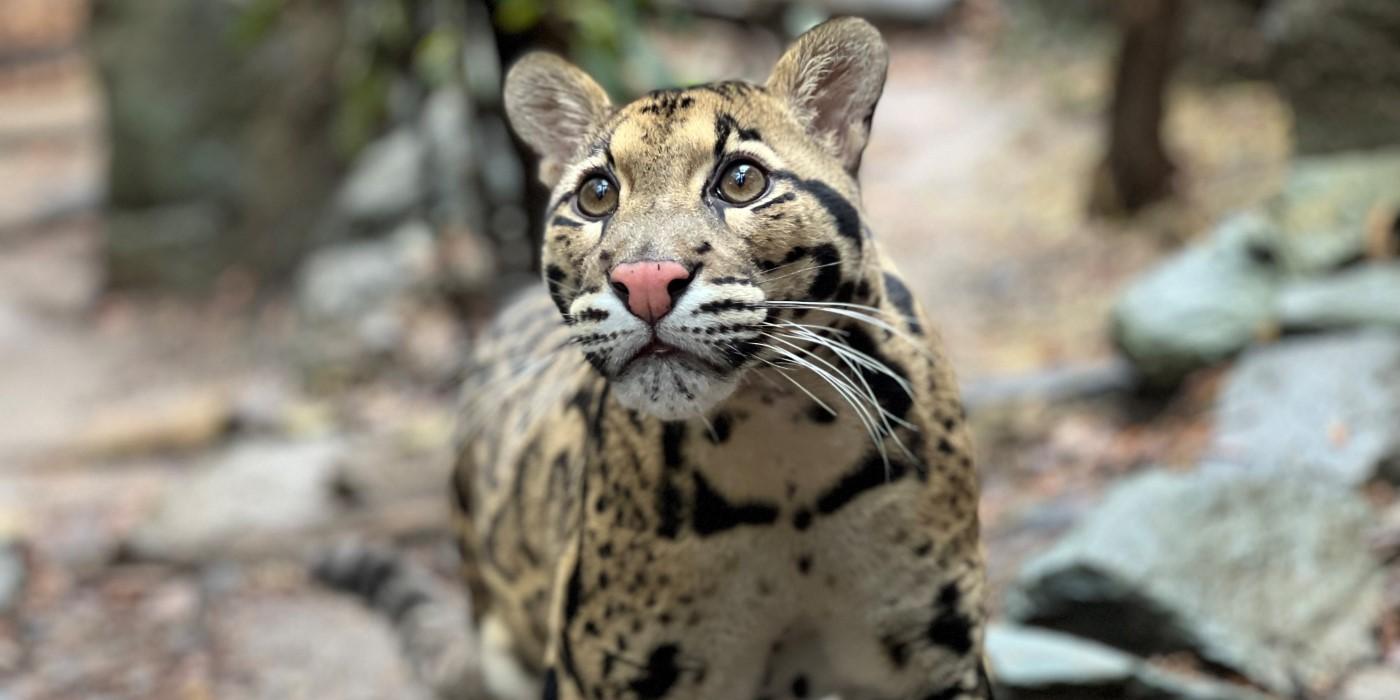Smithsonian’s National Zoo and Conservation Biology Institute Repatriates Kiwi Feathers to New Zealand
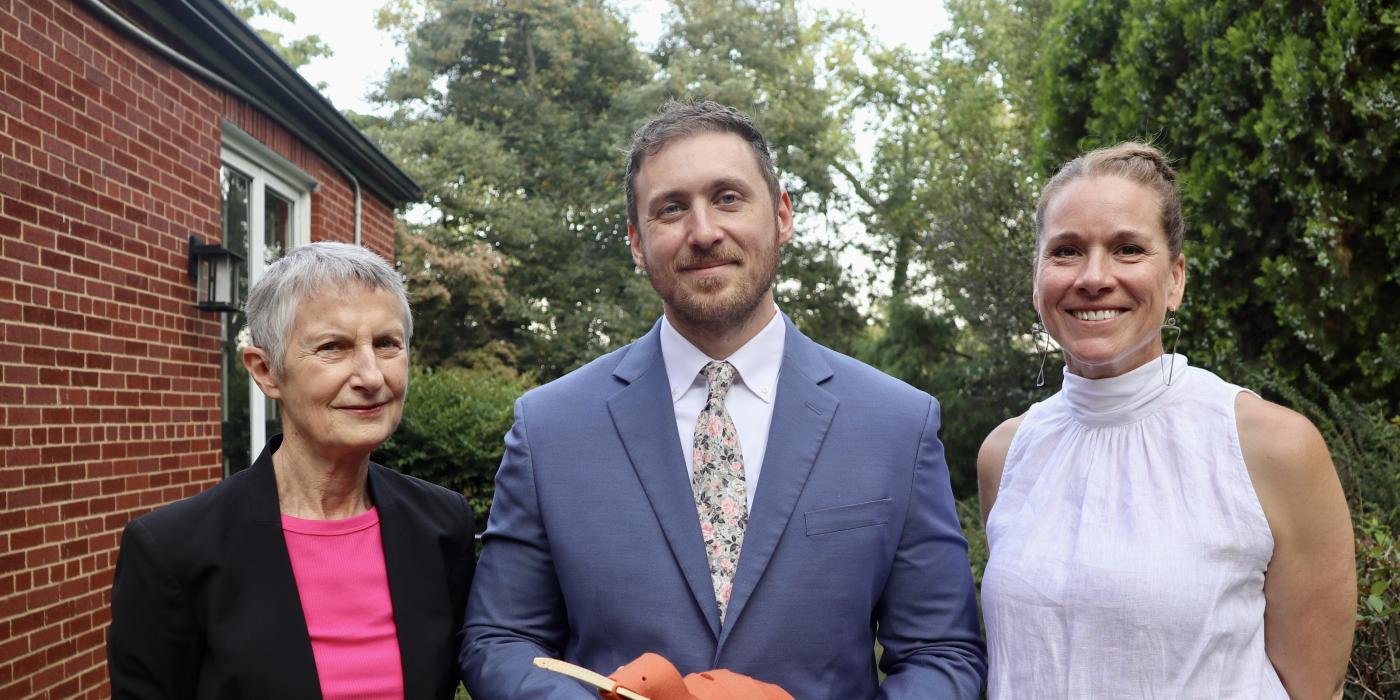
Kiwi feathers collected from across the U.S. and Europe will soon be winging their way home in a repatriation effort between the U.S. and New Zealand.
Smithsonian’s National Zoo and Conservation Biology Institute (NZCBI) bird keeper Wesley Bailey presented New Zealand Ambassador to the United States Rosemary Banks with feathers molted by North Island brown kiwi to be repatriated to New Zealand at a small ceremony Sept. 20 at the ambassador’s residence in Washington, D.C. The feathers were collected from nearly a dozen zoological facilities that have North Island brown kiwi on exhibit, filling two shoebox-sized boxes over several years. Banks said the gifting of kiwi feathers back to Aotearoa—the Māori-language name for New Zealand—is significant for both te ao Māori, or the Māori world view, and international relations between the two countries.
“Kiwi are incredibly unique birds and we understand how important they are to New Zealand and New Zealanders,” said Bailey, who also serves as the Association of Zoos and Aquariums’ North Island brown kiwi studbook keeper and manages all breeding of North Island brown kiwi outside New Zealand. “It is a privilege to not only care for New Zealand’s national bird but to support the species’ survival on an international level.”
“This repatriation of kiwi feathers really does symbolize the way that we work with each other; with respect to our indigenous people and with respect for our taonga (treasured items),” said Banks.
There are 18 zoological and aquarium facilities outside of New Zealand that house a small population of international kiwi, including NZCBI. Eleven of those facilities sent shed feathers to NZCBI, which houses 12 birds, the largest population of North Island brown kiwi in North America.
Michelle Impey, the CEO of conservation nonprofit Save the Kiwi, opened the repatriation event with a presentation on New Zealand’s conservation efforts.
“It was a surprisingly emotional moment to see those kiwi feathers so far from New Zealand,” Impey said. “But it was equally emotional knowing they’ll be flying—with a little help—back to their whenua (land). We are so appreciative of the efforts these international facilities have gone to respect tikanga Māori, or traditional Māori customs, and give this special manu (bird) the respect it deserves. We hope our story of kiwi and the work that goes into bringing them back resonates with Americans and their love and respect for the bald eagle.”
When the feathers are returned to Aotearoa, they will be entrusted to Te Papa Tongarewa, the national museum of New Zealand. Where possible, the feathers will be returned to the iwi, or tribe, the birds originally came from. The remaining feathers will be used in the maintenance and care of the national collection.
The kiwi feathers are expected to arrive at Te Papa Tongarewa later this year.
Smithsonian’s National Zoo and Conservation Biology Institute
The Smithsonian’s National Zoo and Conservation Biology Institute (NZCBI) leads the Smithsonian’s global effort to save species, better understand ecosystems and train future generations of conservationists. Its two campuses are home to some of the world’s most critically endangered species. Always free of charge, the Zoo’s 163-acre park in the heart of Washington, D.C., features 2,200 animals representing 400 species and is a popular destination for children and families. At the Conservation Biology Institute’s 3,200-acre campus in Virginia, breeding and veterinary research on 264 animals representing 20 species provide critical data for the management of animals in human care and valuable insights for conservation of wild populations. NZCBI’s more than 300 staff and scientists work in Washington, D.C., Virginia and with partners at field sites across the United States and in more than 30 countries to save wildlife, collaborate with communities and conserve native habitats. NZCBI is a long-standing accredited member of the Association of Zoos and Aquariums.
Save the Kiwi
Save the Kiwi is a not-for-profit conservation trust that works to save the kiwi—it is in the name, after all! With a mission to take kiwi from endangered to everywhere, Save the Kiwi works to raise awareness about the decline of kiwi, with the ultimate goal of returning the species to the forefront of New Zealanders’ minds and lives. Launched in 1991, Save the Kiwi works alongside iwi, community groups and the Department of Conservation to create safer kiwi habitat and build kiwi populations around Aotearoa New Zealand. Kiwi are the core focus; however, the work Save the Kiwi does has many social, economic and environmental flow-on effects. While much of their work revolves around the North Island brown kiwi, they have plans to expand into the South Island and with other kiwi species.
# # #
First Photo Credit: New Zealand Embassy
First Photo Caption: Smithsonian’s National Zoo and Conservation Biology Institute bird keeper Wesley Bailey (center) presented molted kiwi feathers to New Zealand Ambassador to the United States Rosemary Banks (left) for repatriation.
Second Photo Credit: Smithsonian’s National Zoo and Conservation Biology Institute
Second Photo Caption: A North Island brown kiwi.
Related Species:
Image Gallery
